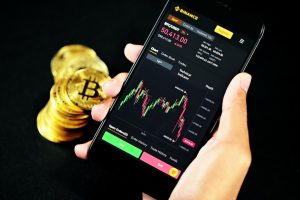Forex trading has become increasingly popular over the past few years, with many investors seeking to take advantage of the opportunities it offers. However, most traders do not have direct access to the forex market. Instead, they rely on forex brokers to facilitate their trades. In this article, we will explain how forex brokers work.
What is a Forex Broker?
A forex broker is a financial services company that provides traders with access to the foreign exchange market. They act as intermediaries between traders and the market, executing trades on behalf of their clients. Forex brokers make money by charging fees, such as spreads or commissions, on each trade.
Types of Forex Brokers
There are two main types of forex brokers: Dealing Desk (DD) brokers and No Dealing Desk (NDD) brokers.
Dealing Desk Brokers
A Dealing Desk (DD) broker is also known as a market maker. This type of broker takes the opposite side of a trade to their clients, meaning that they can be the counterparty to their client’s trades. This means that the broker can manipulate prices and spreads to their advantage. DD brokers typically offer fixed spreads, which means that the spread remains the same regardless of market conditions.
No Dealing Desk Brokers
No Dealing Desk (NDD) brokers, on the other hand, do not take the opposite side of a trade to their clients. Instead, they act as intermediaries between the trader and the market. NDD brokers typically offer variable spreads, which means that the spread can change depending on market conditions.
Forex Broker Regulation
Forex brokers must be regulated by relevant authorities in their jurisdiction. Regulation is important for protecting traders from fraudulent activities and ensuring that brokers operate in a fair and transparent manner. Regulators typically require brokers to meet certain standards, such as maintaining minimum capital requirements and segregating client funds from their own.
Opening a Forex Broker Account
To open a forex broker account, traders must provide personal information, such as their name and address. They must also provide proof of identity, such as a passport, and proof of address, such as a utility bill. Once the account is open, traders must deposit funds into their account to start trading.
Trading with a Forex Broker
Once a trader has deposited funds into their forex broker account, they can start trading. Traders can choose to trade manually or use automated trading software, such as Expert Advisors (EAs). Traders can trade a range of currency pairs, as well as other financial instruments, such as commodities and indices.
Forex brokers typically offer a range of trading platforms, such as MetaTrader 4 (MT4) and MetaTrader 5 (MT5). These platforms allow traders to analyze the market and execute trades. Traders can also use mobile trading apps to trade on the go.
Fees Charged by Forex Brokers
Forex brokers charge fees, such as spreads and commissions, on each trade. Spreads are the difference between the buying and selling price of a currency pair. Commissions are a fee charged by the broker for executing the trade. The fees charged by forex brokers can vary depending on the broker and the currency pair being traded.
Conclusion
Forex brokers play an important role in facilitating forex trading. They provide traders with access to the market, execute trades on their behalf, and charge fees for their services. Traders must choose a reputable broker that is regulated by relevant authorities and offers competitive fees and a range of trading platforms.






